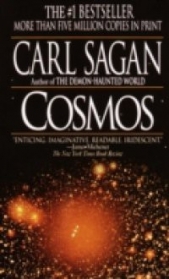Образ человека будущего, Том 7 (СИ)

Образ человека будущего, Том 7 (СИ) читать книгу онлайн
На основе предшествующих трех монографий Международное философско-космологическое общество начало выпуск научного журнала Future Human Image, в котором представлены современные мировые исследования образа человека будущего. Журнал охватывает области нейронаук, педагогики, философии образования и психологии. В данном выпуске представлены работы специалистов из США, России, Украины, Бразилии, Южной Африки, Испании, Казахстана. Журнал публикует исследования на русском, английском и украинском языках
Внимание! Книга может содержать контент только для совершеннолетних. Для несовершеннолетних чтение данного контента СТРОГО ЗАПРЕЩЕНО! Если в книге присутствует наличие пропаганды ЛГБТ и другого, запрещенного контента - просьба написать на почту [email protected] для удаления материала
Let us begin with the assumption that Evil (as well as Good) is extremely difficult to define on the terminological level. However, this does not imply that we cannot conceptualize it by all means. The science, of course, tends to adhere to obvious definitions, which in terms of logic have the "A is B and C" form. However, a great amount of things, to a huge regret of intellectuals of all types, does not reflect such definitions, being at the same time crucial for us. They are as follows: "Love", "Justice", "Happiness" or "Seeking Life Fullness" as well as "Person", "Man". "Good" and "Evil" are likewise. However, for such difficult realities we can exploit ostensive (to show) or contextual (to discuss) definitions. At the same time, some advocates of strict science will argue that the things defined in this way are inevitably subjective and cannot be used as facts. However, anyone who has suffered from "subjective" love or "subjective" consciousness of their own sin (fault) is perfectly aware of the fact that this suffering was of quite an objective, real nature. It has been caused by Love or Sin, but not "subjective experience of sentiments." Here we deal with the empirical law, well known not only to writers and playwrights, but also to all of us through life experience: the human soul suffers from unfortunate love and from a committed sin. In addition, this phenomenon, in our
Future Human Image. Volume 7, 2017 37
Evil as a Subject of Sociological Cognition: Methodological Reflections by Temyr Khagurov
opinion, is quite objective. On the contrary, the illusion of subjectivity is created by the fact that different types of mental organization, depending on upbringing, experience, hereditary constitution and other conditions, can endure and reveal this suffering in a different way. To put it briefly, the Evil can be conceptualized, or it is possible to show some of its forms and to argue about its nature.
Any research starts with an attempt to review the reference sources. In our case, the similar step will turn out to be inevitably fragmentary for several reasons. Firstly, we do not claim for an extensive research of such a difficult subject in any way. This article is rather an attempt of a dialogue, sometimes an attempt to discuss the most widespread approaches in modern sociology and psychology of deviant behavior. Therefore, our purpose consists in the statement of a problem rather than in its thorough analysis. Secondly, we can come across the main and the deepest attempts of understanding and the analysis of phenomena of Good and Evil in religious and philosophical texts as well as in the works of art. The review of at least of the most part of the above-mentioned texts could demand the independent scholarly monograph. Hence, some of them will be mentioned below. Anyway, the fragmentary nature of bibliography and reference foundation of our introduction to a problem is obvious, and can be justified only by the fact that we present no more than the first step in the designated direction to a reader.
In our viewpoint, the fundamental coordinates of modern scientific approach to the understanding of a perspective of the Evil issue have been laid in the works of Karl Marx, Émile Durkheim, Karl Popper, Sigmund Freud and Friedrich Nietzsche. Herewith, Marx and Nietzsche in their treaties have set the polar ideas of Evil phenomenology on the social and philosophical level.
Marx has formulated the idea of the class nature of moral discourse. Durkheim has contributed to it with the idea of collective consciousness as the carrier of the moral authority, emphasizing that collective consciousness never covers all the community members, but only the majority. Respectively, the understanding of norm in sociology was approved as a statistical phenomenon - what the majority in this social community at present do (sometimes - with the reservation of adaptability of such behavior) is considered normal. These ideas, which are often rather freely interpreted, have given way to constructivism - the theory according to which the concepts of "good" and "evil", "norm" and "deviation" are a product of social constructing and accord. This, though making a start from objective reality of primary individual and social needs, has a huge historical and cultural variability. The treatise of Peter Berger and Thomas Luckmann "The Social Construction of Reality" [Berger & Luckmann, 1995] became the most famous and deep sociological achievement of this idea. Amongst modern works of Russian scientists on the subject of deviantology "The Construction of Deviance" under Yakov I. Gilinsky"s edition [Designing, 2011] stands out. In terms of classical constructivism, the main form of Evil is an anomy - the so-called state of abnormity - being in fact the interpretation by Durkheim of Hobbes" "wars of all against all." "The law is changeable, but it is the Law and without it life turns into chaos" - that is the credo of classical constructivism.
Postmodern interpretations of the idea of constructivism (mainly by Michel Foucault [Foucault, 2010] and Jacques Derrida [Derrida, 1997]) have brought it, in our opinion, to the point of absurdity. We will refer to this subject again later on. For the time being we will only make a notice that even "moderate" constructivism is in difficult correlation with social reality, constantly solving a dilemma what elements of this reality are ontologically caused and a little
38 Future Human Image. Volume 7, 2017
Evil as a Subject of Sociological Cognition: Methodological Reflections by Temyr Khagurov
changeable, even in different forms, and which of them are purely an essence of any and easily changing social scenery.
In psychology the understanding of evil (deviation) has been substantially reduced to a problem of unadaptation, in many respects due to psychoanalysis and behaviorism, i.e. Sigmund Freud and John Watson"s ideas which are quite different at first sight, yet, deeply similar when it comes to profound understanding of a person and motives of his or her behavior.
John Broadus Watson followed by Burrhus Frederic Skinner have actually proved and spread a view of morals (as well as on other mental structures) as the conditioned-reflex formation gained within the course of adaptation of the individual to environmental conditions under the influence of positive and negative incentives. What we call "evil" is only the destructive forms of adaptation to the environment. This thought has formed the basis of numerous strategies of "a training of the adaptive forms of behavior" which have become the main direction of psychocorrective work in a behaviorism scenery.
Sigmund Freud"s ideas (one of the most influential thinkers of the 20th century) about the origin and essence of Super Ego - a moral component of personality, which is in charge of "knowledge of good and evil" - represents the psychological version of evolutionary constructivism. The moral, according to this point of view, is like a new type of mentality, which has succeeded instincts and is designed to secure human herd against the most destructive manifestations of individual aggression and sexuality.























